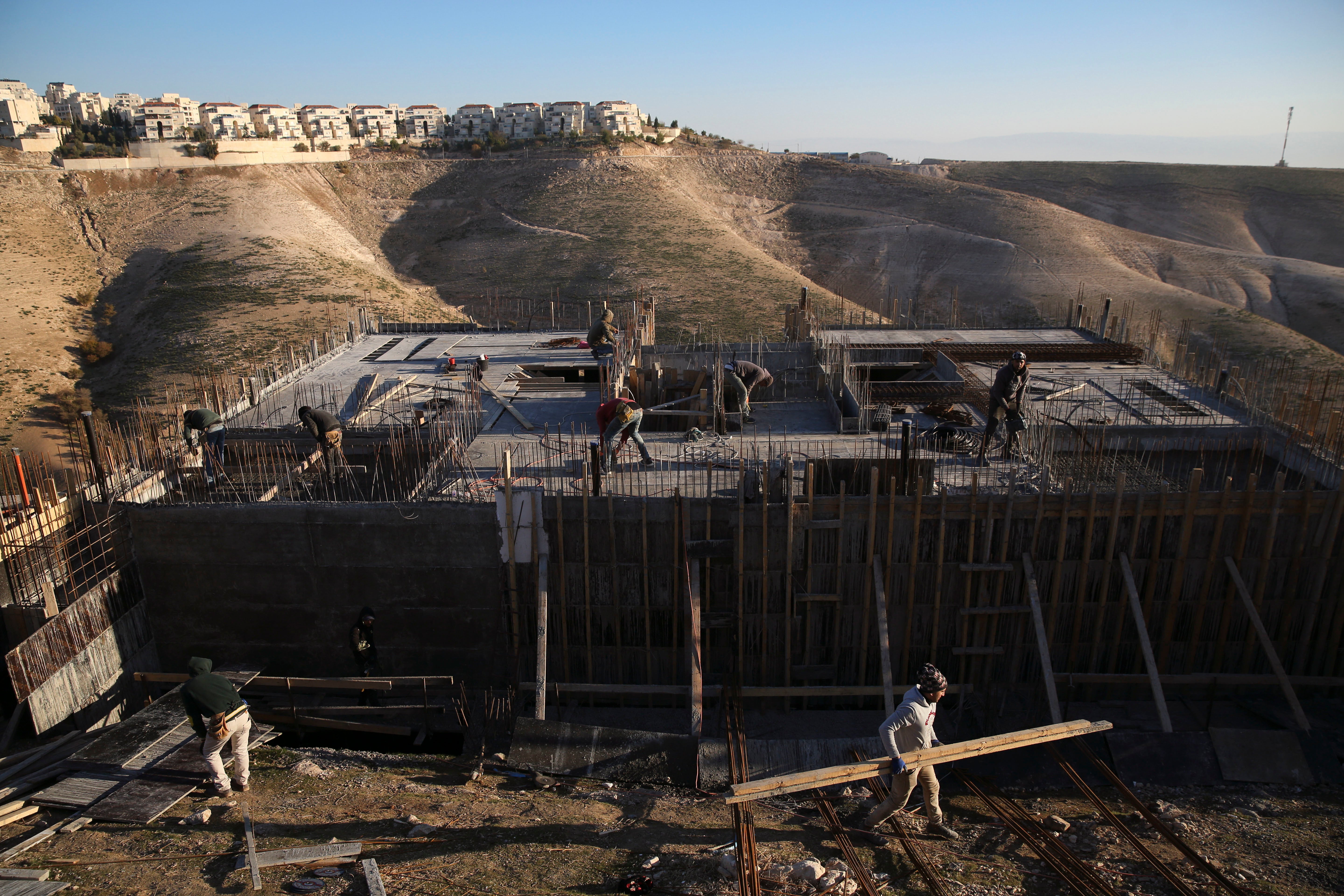Israel approves more than 3,000 West Bank settlement homes
2020 is one of the most prolific years for settlement building, according to watchdog group

Your support helps us to tell the story
From reproductive rights to climate change to Big Tech, The Independent is on the ground when the story is developing. Whether it's investigating the financials of Elon Musk's pro-Trump PAC or producing our latest documentary, 'The A Word', which shines a light on the American women fighting for reproductive rights, we know how important it is to parse out the facts from the messaging.
At such a critical moment in US history, we need reporters on the ground. Your donation allows us to keep sending journalists to speak to both sides of the story.
The Independent is trusted by Americans across the entire political spectrum. And unlike many other quality news outlets, we choose not to lock Americans out of our reporting and analysis with paywalls. We believe quality journalism should be available to everyone, paid for by those who can afford it.
Your support makes all the difference.Israel on Thursday pressed forward on plans for more than 3,000 West Bank settlement homes, making 2020 one of the most prolific years for settlement building according to a settlement watchdog group.
Thursday's approvals, along with more than 2,000 new homes approved a day earlier, are part of a building boom that has gained steam during the presidency of Donald Trump It also comes months after Israel promised to put on hold plans to annex parts of the West Bank in exchange for a U.S.-brokered normalization deal with the United Arab Emirates.
The latest approvals raised the number of settlement homes to be advanced this year to more than 12,150, according to Peace Now the settlement watchdog group. It is by far the highest number of approvals since Trump took office in early 2017 and the highest since Peace Now began recording the figures in 2012.
The Palestinians claim all of the West Bank, captured by Israel in the 1967 Mideast war, as part of a future independent state. They say the growing settler population, approaching 500,000 in the West Bank, has made it increasingly difficult to achieve their dream of independence.
A string of U.S. administrations, along with the rest of the international community, opposed Israeli settlement construction.
But Trump, surrounded by a team of advisers with close ties to the settler movement, has taken a different approach. In contrast to its predecessors, the Trump administration has not criticized or condemned new settlement announcements, and in a landmark decision last year, Secretary of State Mike Pompeo said the U.S. does not consider settlements to be illegal under international law.
The Trump administration’s Mideast plan, unveiled early this year, calls for leaving 30% of the West Bank, including all of Israel’s more than 120 settlements, under permanent Israeli control.
Buoyed by Trump's stance, Israeli Prime Minister Benjamin Netanyahu intended earlier this year to push toward annexing the parts of the West Bank it would keep under the Trump plan. But that plan was scuttled, at least temporarily, after the UAE deal was announced. The UAE has said it made this demand to keep Palestinian hopes alive.
Peace Now views the new construction as “de facto annexation,” which threatens the possibility of a two-state solution to the Israeli-Palestinian conflict.
“Instead of taking advantage of the agreements with the Gulf states and promoting peace with the Palestinians, (Netanyahu) is distorting Israel’s priorities and catering to a fringe minority for these settlement unit approvals that will continue to harm future prospects for peace,” it said in a statement.
Ahmad Majdalani, a Palestinian Cabinet minister, said Netanyahu was working “systematically to end the two-state solution through settlement activities." He said he believed the wave of approvals this week was in response to concerns that Trump's challenger, Joe Biden, will likely be less accepting of settlement construction if elected.
“This year was the peak of his settlement activities because he wants to create as much facts on the ground as possible, fearing any change in the White House. Maybe that’s why just two weeks before American elections he pushed toward this decision,” he said.
The units allowed to move forward in different planning stages include hundreds of homes that were built illegally but were now being given retroactive approval. Peace Now said many of the approved homes stretch deep into the West Bank.
The approvals add to a growing pipeline of construction that is expected to take off in the next few years. One of those plans would build 560 homes in Har Gilo, a strategically placed settlement between the Palestinian city of Bethlehem and Jerusalem.